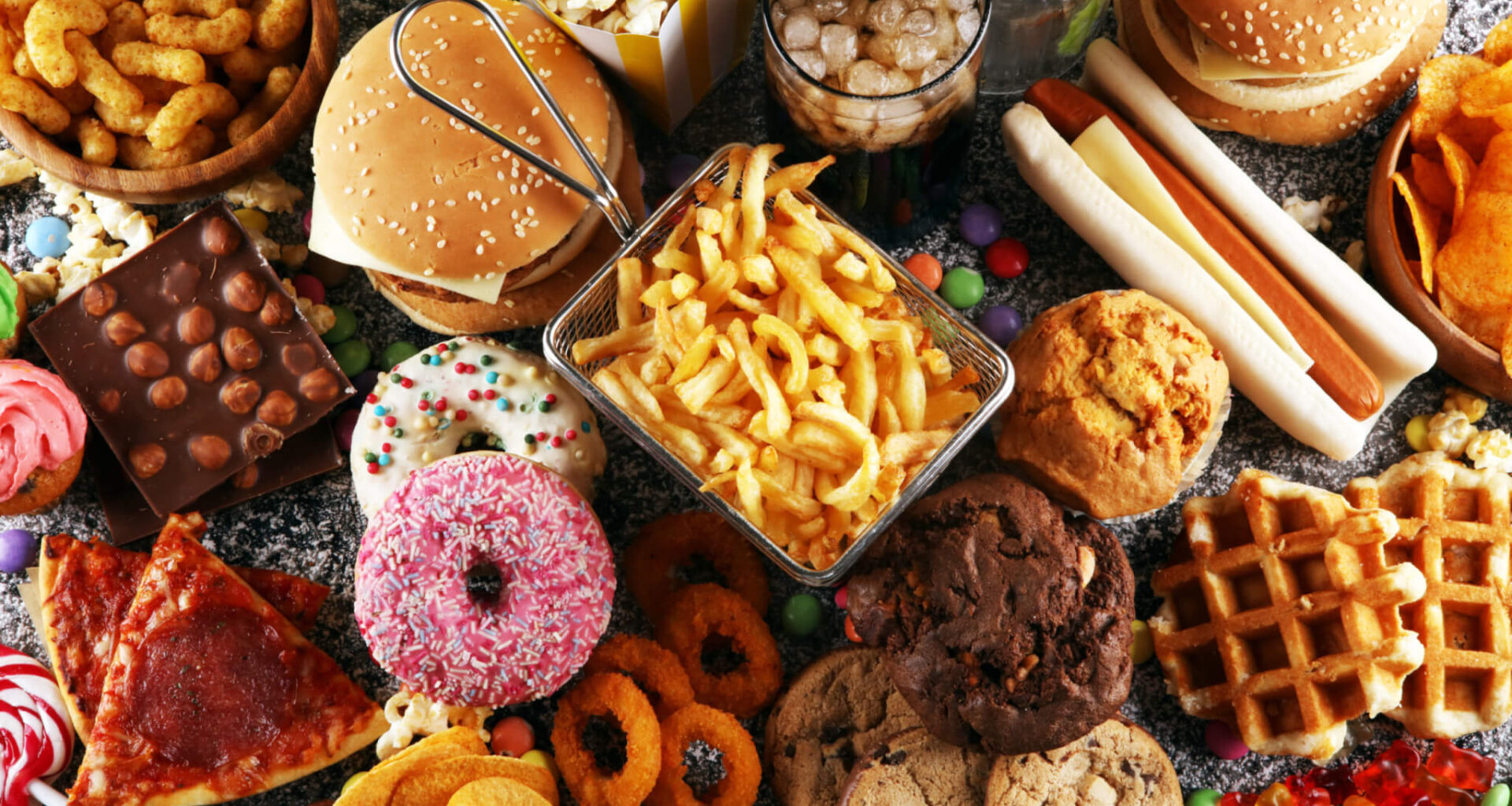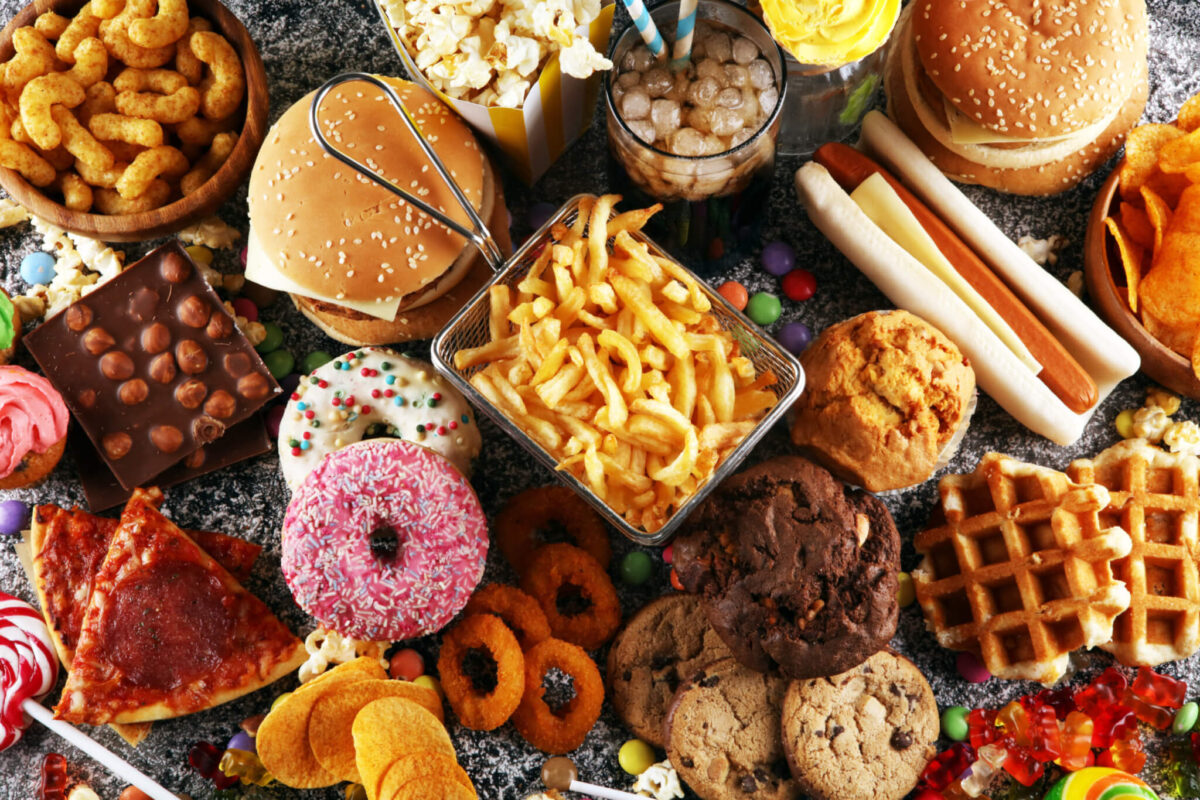(© beats_ – stock.adobe.com)
Study Shows Why High-Fat Diets Make the Brain Forget Faster — And How It Might Be Reversible
In A Nutshell
- In just seven days, fruit flies on a high-fat diet struggled to remember things they had learned only hours earlier.
- The problem wasn’t brain shrinkage but a jammed-up “cleanup crew” inside neurons that normally recycles damaged cell parts.
- Intermediate- and long-term memory were affected, while short-term memory, like instant recall, stayed intact.
- When researchers boosted the cleanup process, memory function returned, suggesting the damage may be reversible.
CHIBA, Japan — Ever had trouble remembering where you put your phone, or what someone told you earlier in the day? Most of us chalk it up to being distracted or tired. But new research suggests something else might be at play: what you eat.
A study from Chiba University in Japan, published in PLOS Genetics, shows that a high-fat diet can disrupt memory in fruit flies in as little as a week. The damage didn’t strike all kinds of memory equally. The flies could still recall things right away, but memories meant to last a few hours or even a full day slipped away.
The culprit wasn’t weight gain or brain shrinkage. Instead, the problem traced back to a jammed-up cellular “cleaning crew” that normally keeps neurons in working order. And surprisingly, once that cleanup system was boosted, memory bounced back—even while the flies stayed on their fatty diet.
The Brain’s Cleaning Crew Gets Overloaded
In the experiment, fruit flies were given either a normal diet or one laced with 20% coconut oil. That’s roughly like a person getting a fifth of their calories from added fats. Flies might sound like an odd choice, but their brain cells share many of the same maintenance systems as ours.
After seven days, the flies on the high-fat diet showed trouble with something called autophagy. You can think of autophagy as the brain’s cleaning service: it sweeps away broken proteins and worn-out cell parts before they pile up.
But under the fatty diet, this system faltered. Cellular garbage began to build up inside neurons, especially in regions tied to memory. It wasn’t that the flies lacked the tools. They still had plenty of lysosomes—the little sacs inside cells that break down waste. The problem was that autophagosomes (the bags that collect trash) and lysosomes (the bins that break it down) failed to connect. With the two unable to merge, the cleanup stalled, leaving junk scattered through the neurons.
You may want to think twice next time you’re craving fast-food. (Photo by Elizaveta Galitckaia on Shutterstock)
What Happened to the Flies’ Memory
The scientists then tested how this cellular gridlock affected behavior. Flies were trained to avoid certain smells linked with a mild electric zap. Normally, a fruit fly can remember this for a few hours or even a day.
The results were clear: flies on the fatty diet forgot within hours. Their short-term memory (what they remembered right after training) was fine. But when tested three hours later, their recall was poor. By the next day, their long-term memory had also weakened.
In daily life, the type of memory most affected is the one that helps us recall what was said earlier in a meeting, where we placed an object, or what someone asked us to pick up from the store. It’s the glue that holds everyday routines together.
Can the Damage Be Undone?
There is hope to be had, however. When the researchers tinkered with the flies’ brain cells to ramp up their cleanup systems, the memory problems eased. They tried three different approaches:
- Turning off a protein called Rubicon, which normally slows autophagy.
- Overactivating another protein, Atg1, which jump-starts cleanup.
- Feeding flies rapamycin, a drug that helps cells recycle waste.
All three strategies worked. Flies regained their ability to form memories that lasted for hours, even though they stayed on the high-fat diet.
There was a catch: when autophagy was pushed too far in flies on a normal diet, their memory dipped. This shows the brain needs balance. Too little cleanup leads to clutter, but too much may throw healthy processes off track.
So what does this mean for everyday people? It’s not a direct prescription, but it offers some big-picture clues. First, it shows that diet-related memory problems may not be permanent. The brain’s cleanup system can bounce back if supported. For humans, that support could come from more balanced eating patterns, lifestyle changes that encourage healthy metabolism (like exercise and good sleep), or — one day — medicines that safely boost this recycling process.

It also highlights the importance of balance. The study found that artificially boosting the cleanup system in healthy flies on normal diets slightly reduced memory performance, suggesting the brain needs precisely balanced maintenance activity. That means there’s no magic pill. The body works best when its systems are in sync, and extreme fixes can backfire.
For now, the practical lesson is that what we eat can affect the brain’s housekeeping surprisingly quickly. Choosing foods that don’t overload the system may help preserve focus and memory in the short run, while also protecting long-term brain health.
Beyond Fruit Flies
Fruit flies, of course, are not people. But they offer a quick way to see how diets affect memory at the cellular level, something that’s much harder to study directly in humans.
The study suggests that memory may be far more sensitive to diet than we realize. While many studies have looked at long-term eating patterns and dementia risk, this experiment shows measurable changes within just a week. That’s startlingly fast.
It also offers a possible explanation for why high-fat diets are linked in human studies to Alzheimer’s disease and other forms of cognitive decline. If our brain’s cleaning crew can’t keep up, damaged proteins may accumulate and interfere with memory.
Still, there are limits. The study used only male flies, and only one type of fat (coconut oil). Different fats might act differently, and sex differences may matter too. Human diets also span decades, not days. So while the findings are provocative, they’re not a direct prescription for people.
The Bigger Picture
The cellular cleanup system doesn’t just protect memory. It’s vital for health throughout the body, from the liver to the heart. That means the effects of a high-fat diet could ripple well beyond the brain.
For now, the message is less about panic and more about awareness. Our brains depend on well-tuned maintenance crews. If diet can throw those off balance in days, it may help explain why some people feel mentally sluggish after periods of heavy eating—and why diet is increasingly linked to long-term brain health.
The encouraging news? The brain’s systems aren’t rigid. They can bounce back if given the right support. While scientists are still far from translating these fly experiments into human therapies, the idea that diet-linked memory loss might be reversible is a hopeful one.
Disclaimer: This article is for general information only and should not be taken as medical advice. For personal health guidance, please consult a qualified professional.
Paper Summary
Methodology: Male fruit flies were fed either a normal diet or one with 20% coconut oil for seven days. Memory was tested at three time points: 3 minutes (short-term), 3 hours (intermediate-term), and 24 hours (long-term). Brain tissue was examined for cleanup markers, and genetic and drug interventions were used to tweak autophagy.
Results: Flies on the fatty diet showed impaired intermediate- and long-term memory, though short-term memory stayed intact. Their neurons accumulated waste due to failed fusion between autophagosomes and lysosomes. Enhancing autophagy genetically or with rapamycin restored memory.
Limitations: Only male flies and one fat source were tested. Short exposures in flies don’t directly translate to decades-long human diets. Effects on other memory systems remain to be explored.
Funding: Supported by JSPS KAKENHI, AMED, and JST SPRING grants. Authors reported no financial conflicts.
Publication: Yue T, Jiang M, Onuki K, Itoh M, Tonoki A. “High-fat diet impairs intermediate-term memory by autophagic-lysosomal dysfunction in Drosophila.” PLOS Genetics. Published August 18, 2025.


